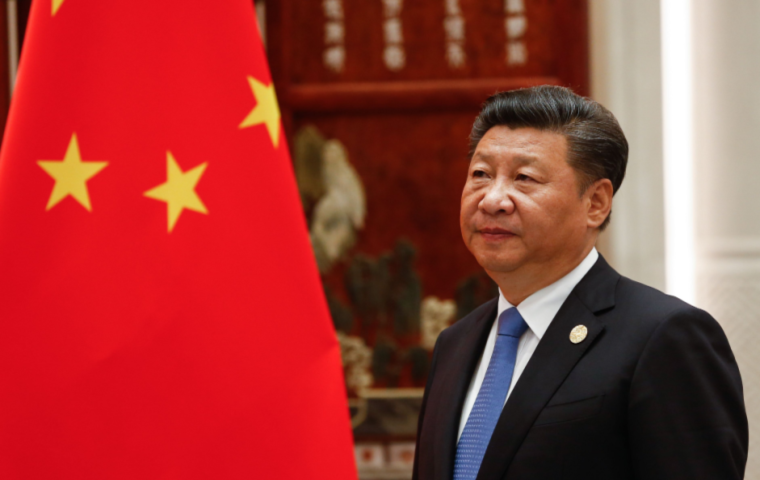India Shows Shrewd Diplomacy Again in Hiroshima
Related Articles

Although this is not the first time for India to be invited to the G7 Summit, never has it shown so much presence. Let us examine India’s aims and intentions behind all the attention, from the points of the “Global South” and the “invasion of Ukraine.”
India’s strongest motive for accepting the G7 invitation was to stress the plights and the importance within the international community of the Global South, comprising emerging and developing countries, and seek out solutions for the challenges. Indian Prime Minister Narendra Modi requested G7 leaders to secure a stable supply of food and energy. The G7 Leaders’ Communiqué stated that the members had confirmed to “drive the transition to clean energy” and “enhance food supply chains.” Modi held bilateral meetings with over 10 heads of states and organizations, and Foreign Secretary Vinay Kwatra said proudly that every one of them referred to the issues of the Global South.
Speaking on behalf of the Global South, India is determined to serve as a bridge between advanced nations and the developing countries. The G20 Summit will be held in New Delhi this September. We could say, as the G20 host, India has made some headway in its strategy to boost its global status by presenting solutions to these global issues.
On the second day of the G7 Summit, Ukrainian President Volodymyr Zelensky made his surprise visit. Modi held talks with him that very day. An Indian broadcast reporter who accompanied Modi guessed Ukraine must have secretly approached in advance and India was ready to respond.
In the meeting, Modi assured Zelensky that India would do “everything within our means” to resolve Russia’s invasion of Ukraine. The following day, at the G7 session where Zelensky also attended, Modi claimed all nations must respect sovereignty and territorial integrity and called to “raise your voice against unilateral attempts to change the status quo.” To this, some European members pointed out a shift in India’s stance which had been avoiding criticism of Russia.
Premature to Think India Has Changed

No doubt, it is notable that India publicly announced its stance of commitment to stop the Russian aggression and it is reasonable for the G7 to accept it as a step forward. However, India’s statement should be taken with a grain of salt, and we should not jump to conclusions that it has changed course in foreign policy.
Former diplomat Ashok Sajjanhar, who has served as the ambassador of India in three countries including Sweden, says, “The comment means India is ‘ready to do whatever is possible toward solving the Ukraine situation through dialogue,’ and this is what India has repeated all along,” and stressed there is no change in stance. The national paper the Indian Express, in its editorial titled “A Finer Balance,” explained Modi was just articulating the underpinning normative that, “the war has hurt developing countries the most by triggering a global fuel, food, and fertilizer crisis, ……and that the conflict needs to be brought to an end urgently ……before more people die.” The paper doubts India is shifting towards the Ukraine side. Although Zelensky explained his 10-point peace plan, including the complete withdrawal of Russian troops, the Indian government has not disclosed Modi’s response. India has not joined in the sanctions against Russia, and continues to buy Russian crude oil, which was not talked about.
Regarding the “unilateral change of the status quo” comment, the Asian Age and others point out it was a message for not only Russia but also China. There was a border skirmish between India and China in 2020, with a continuing standoff. India is opposing China, which is allegedly building bridges and other constructions along the Sino-Indian border.
Meanwhile, the immediate priority for India’s diplomacy is compiling the outcome documents at the G20 Summit. At the ministerial meetings in February and March, China and Russia objected to the descriptions of the Russian invasion of Ukraine and did not reach an agreement. How India’s attitude at the G7 Summit impacts the G20 Summit will depend on its diplomatic performance from here on, described as “walking a tightrope.”
This is a translation of the Japanese article published in vol. 79 (May/Jun. 2023) of the Gaiko (Diplomacy) magazine.
Tomomi Asano is a staff writer at the Yomiuri Shimbun New Delhi Bureau. After graduating from Waseda University, she joined the Yomiuri Shimbun Osaka headquarters in 2008. She served at the Matsuyama Bureau, Kobe General Bureau, Osaka headquarters city department, and political department. From June 2022, she is stationed at the New Delhi Bureau, covering South Asia diplomacy and security. During her days at the political department, she covered the Prime Minister’s Office and the Ministry of Foreign Affairs.




